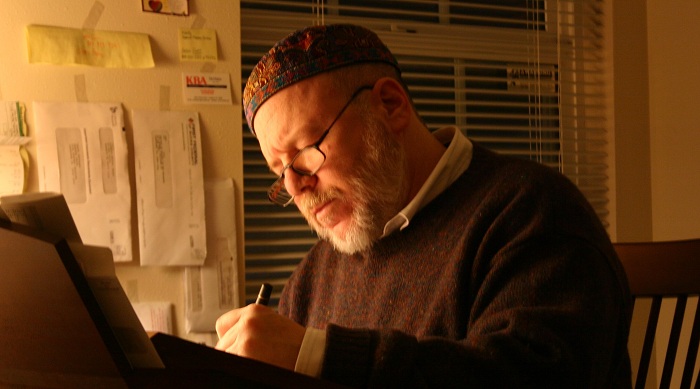 |
From the Night Factory
10. Greek Mythology
It is because I love a good
story that when I was in the seventh grade, I became
enamored with mythology, particularly Greek mythology.
It supplanted my earlier passion for dinosaurs. It
inspired me to read the Bible and learn Jewish and
Christian mythology as well, but the Greek myths were
much better than the myths of the Hebrews. Even my
mother, who was born into an Orthodox Jewish household,
insisted on calling the Bible a “fairy-tale” and
therefore a waste of her time, yet she enjoyed the Greek
myths.
In the beginning, the Greek myths belonged to a
Hellenistic culture and were universally known, but as a
religious belief. It has changed. For centuries, Greek
myths or their Roman counterparts provided iconic
stories, a shared understanding for an educated class,
the myths serving as a cultural language. One of my
proudest memories was a class trip to the Philadelphia
Museum of Art. I was twelve or thirteen. The docent led
us to a chest manufactured during the Renaissance,
pointed to one of the carved panels and asked if anyone
knew who it was. It was Herakles. I recognized him
instantly by his lion-skin hoody and lumpy club.
Similarly, I was the only one to recognize Prometheus
hanging on a rock and having his liver eaten by an
eagle, a painting by Peter Paul Rubens. The more we are
able to read, the more our lives are enriched.
As for me, in that twelfth year of life, I was doing a
miserable job of keeping my grades up in school and was
equally pitiful in Hebrew school, where I was being
prepared for my bar mitzvah. However, at home I was
reading every mythological text on my father’s shelf. It
was also my good fortune that my father would buy any
book I wanted. He bought me Gods, Heroes and Men of Ancient Greece
by W. H. D. Rouse, a book I held in higher regard than
the Bible. The first translations I read of The Iliad and The Odyssey were
both by W. H. D. Rouse.
In time I would read many translations of The Iliad and The Odyssey, most
recently those by Robert Fagles. Of Greek mythology in
general, perhaps Edith Hamilton or Thomas Bulfinch wrote
better books, but my loyalty remained with W.H.D. Rouse,
maybe because his was the first book I read on the
subject. Apollodorus, Hesiod, Ovid, all eventually
engaged me as a child, stealing me out of the oppressive
classes of less interesting subjects taught by martinets
following senseless dogma. Nor have I finished with this
passion. Staring down at me is the two-volume set of The Greek Myths by
Robert Graves, which will be the next book I engage when
I return to the subject.
When I took a course in Children’s Literature at Bucks
County Community College, our professor startled the
class by requiring us to take a pop quiz before the
first lesson began. The quiz consisted of a series of
phrases and we were required to fill in the blanks with
the appropriate words that followed. As the class
examined the test placed before them, there were giggles
and snorts of relief. The test went something like this:
 1. Humpty Dumpty sat on a wall,
_______.
1. Humpty Dumpty sat on a wall,
_______.
 2. Jack be nimble, Jack be
quick, _______.
2. Jack be nimble, Jack be
quick, _______.
 3. There was an old woman who
lived in a shoe, _______.
3. There was an old woman who
lived in a shoe, _______.



 Et cetera.
Et cetera.
Without exception, we all passed with flying colors. The
professor went on to explain how such nursery rhymes
were a significant hallmark of academic-bound students,
whereas unfamiliarity with nursery rhymes was a sure
sign of never reaching college. Nursery rhymes are an
early indoctrination into an educated culture. My
advice, read nursery rhymes to your children and, when
they are older, read to them the Greek myths. Do not
make them wait until they are twelve.
Perhaps it was because I was young, I could appreciate
the fun-loving and adventurous gods and heroes of the
Greeks. They had passions and took pleasure in beauty,
whether it be in craft or appearance. The god of the
Jews was too staid and arbitrary, without expressions of
enjoyment or an appreciation for beauty. The god of the
Jews was never interested in anything other than
obsessively governing and manipulating people. All work
and no play makes Yahweh a dull god.
Mr Bentzman will continue
to report here regularly about the events and concerns
of his life. If you've any comments or suggestions, he would be pleased to hear from you.
Mr Bentzman's
collection of poems "Atheist Grace" is available from
Amazon, as are "The Short
Stories of B.H.Bentzman"
